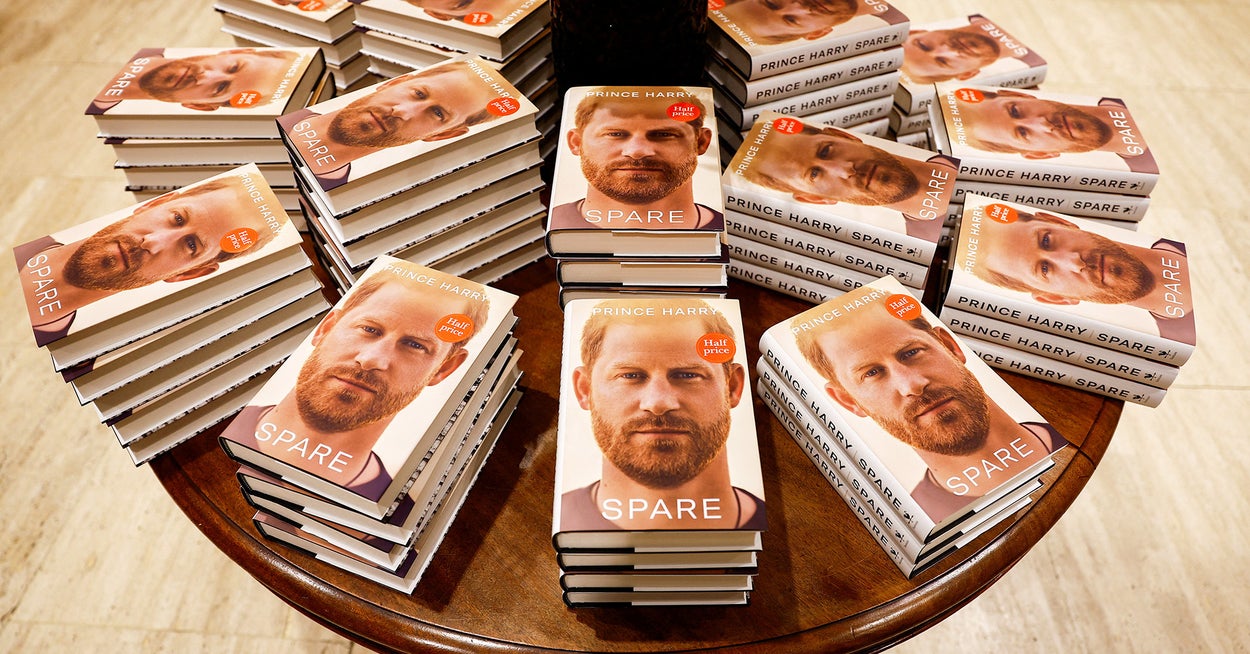|
Getting your Trinity Audio player ready...
|
“Spare is about the torment of a royal in the age of the smartphone and Instagram,” argues Charlotte Higgins in her Guardian review, “a torment of a different order from even that suffered by his mother, and certainly by Princess Margaret, forbidden from marrying the man she loved by her own sister.” Harry admits in the book to spending years reading what seems like every vile word ever published about him, from the front page of the tabloids to randos’ social media feeds. His therapist suggested to him that he might be addicted to it.
To much of the British press, Harry’s tell-all is only a sign of his terrible hypocrisy. James Marriott in the Times writes that “although he claims to despise the intrusions of the press, Harry craves being the centre of attention.”
“I may be old-fashioned,” Philip Hensher concludes in his Spectator review, “but I don’t consider that the appropriate person to advocate any restrictions on published writing is somebody who has only ever, it appears, read one book under the demands of his very expensive schooling, and who evidently regards our noble trade with undiluted contempt, which may of course be justified, and unmitigated ignorance, which never is.”
Spare was never going to change the minds of Harry’s haters. But even those who were rooting for the prince’s escape from his gilded cage — this was a boy who grew up knowing that he existed in large part as a potential organ donor for his more important brother — are starting to wonder where he’s really going with all this. According to a survey conducted this week by YouGov, only a quarter of Britons have a positive view of the Duke of Sussex, a seven-point drop since his favorability was polled in December. Most significantly, younger people, who’ve been much more likely to be pro-Harry, are turning on him too: 41% percent of young Brits approve of him, while the same percentage disapprove — an astonishing drop from his 20-point lead in December, when 49% held a positive view compared to just 29% negative.
Perhaps it is precisely Harry’s “cakeism” that’s bothering younger generations in the UK, a full two-thirds of whom would like to see the monarchy abolished. Even in the US, Harry and Meghan’s adopted home, where they’ve enjoyed a more favorable reception, the tide seems to be turning against them, argues Sarah Lyall in a piece today for the New York Times.
While there’s plenty of sympathetic material in Spare — many reviewers have pointed out that Harry’s aching for his mother is the most poignant element of the book — there’s also Harry taking pride in killing 25 Taliban soldiers by othering them, according to what he says was the army’s way of rendering the enemy inhuman; there’s Harry writing, explicitly, that his “problem has never been with the concept of monarchy.” What we’re left with is not a heroic freedom fighter against institutional racism and oppression, but a traumatized young man of enormous privilege who wishes his family wasn’t quite so fucked up and would generally do a little less racism (sorry, “unconscious bias”) — and not because racism is bad, necessarily, but because it’s hurting him personally. That someone is getting harder and harder to root for. ●



